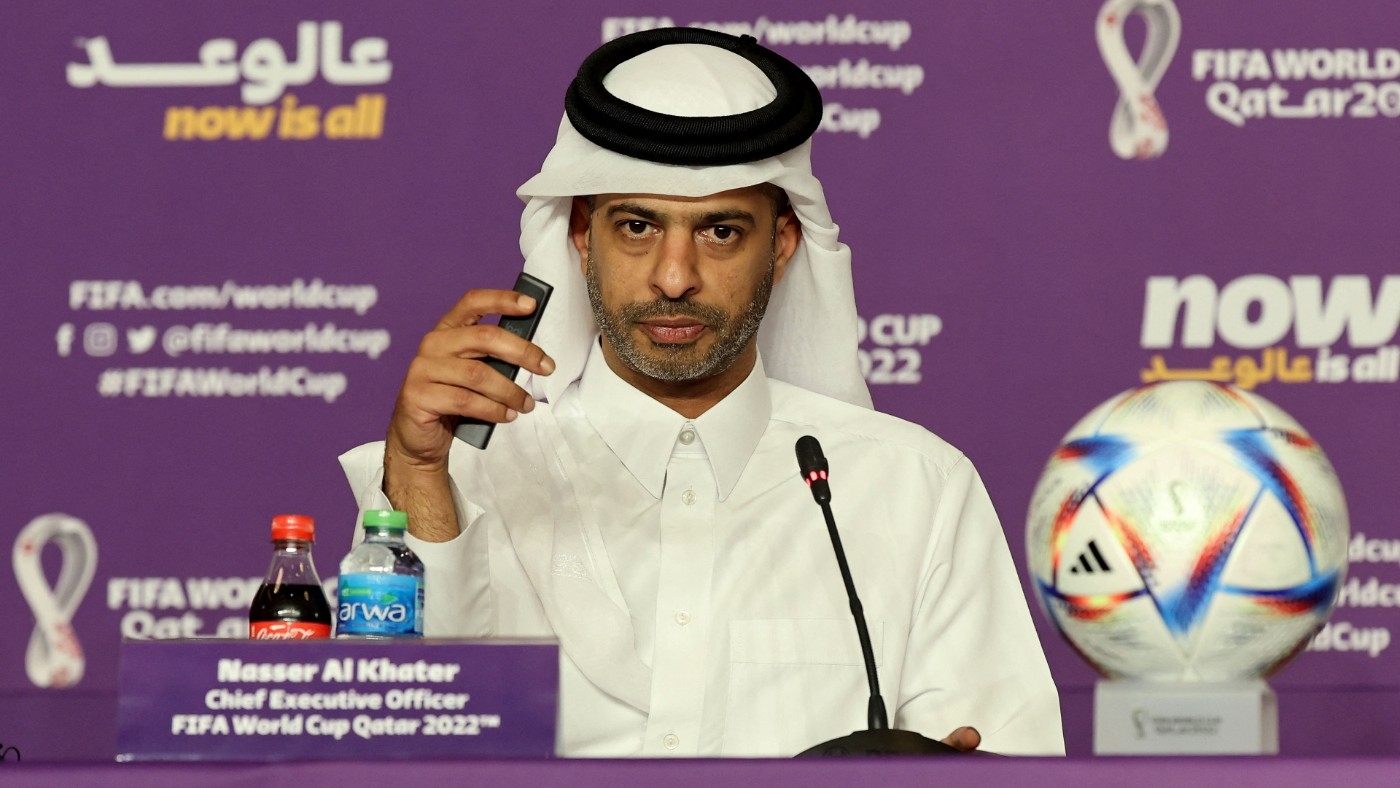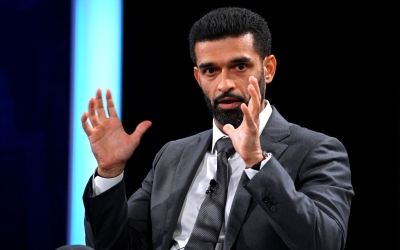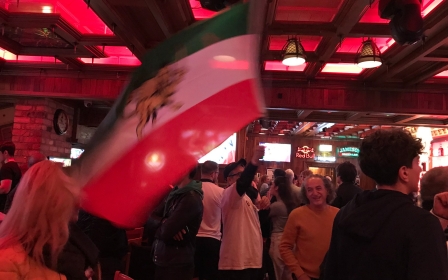Qatar World Cup CEO says 'death a natural part of life' after worker dies

The Qatar World Cup’s chief executive Nasser al-Khater has responded to the recent death of a migrant worker by saying that “death is a natural part of life."
Speaking to reporters, a visibly frustrated al-Khater said on Thursday: “Death is a natural part of life, whether it’s at work, whether it’s in your sleep. Of course, a worker died. Our condolences go to his family.”
On Wednesday, The Athletic reported that a Filipino man working at the Sealine Resort, where the Saudi national team trains, had died in a forklift truck accident in which he “slipped off a ramp while walking alongside the vehicle and fell headfirst against concrete”.
Qatar has launched a work safety investigation into the incident, which took place at a tournament marked by a fierce, ongoing debate over the treatment of migrant workers and their rights.
New MEE newsletter: Jerusalem Dispatch
Sign up to get the latest insights and analysis on Israel-Palestine, alongside Turkey Unpacked and other MEE newsletters
"If the investigation concludes that safety protocols were not followed, the company will be subject to legal action and severe financial penalties," a Qatari government official, who declined to be named, told Reuters.
The Philippines' foreign ministry confirmed in a statement that one of its nationals had died while working at a resort south of the capital Doha. It said its embassy was "working with legal authorities to ascertain more details of his passing".
Though he did not provide specifics, al-Khater confirmed that a worker had died. But the World Cup CEO was visibly frustrated when asked about it.
“We are in the middle of a World Cup and we have a successful World Cup and this is something you want to talk about right now?” al-Khater asked reporters. “It’s strange that this is something you wanted to focus on.”
The Filipino worker was said to be in his early 40s. A medical helicopter flew to the scene of the accident but he could not be saved, The Athletic reported.
The issue of migrant workers in Qatar, who have worked and lived in often terrible conditions in the country while building infrastructure for the World Cup, has dominated headlines since before the tournament even began.
Hassan al-Thawadi, Qatar’s World Cup chief, has said that 400-500 migrant workers have died while working on construction since the tournament was awarded to the emirate in 2010.
Other sources say the figure is far higher. The Guardian reported that 6,500 non-Qataris had died in the emirate since the construction work for the World Cup began, but that number includes natural or non-work related deaths.
Amnesty International has noted that thousands of non-Qatari deaths are not properly examined and simply put down as “natural”.
Speaking to reporters on Thursday, al-Khater added: “Look, workers’ deaths has been a big subject during the World Cup. Everything that has been said and everything that has been reflected about workers’ deaths has been absolutely false.
“This theme, this negativity around the World Cup, has been something that we’ve been faced with. We’re a bit disappointed that the journalists have been exacerbating this false narrative.
"And honestly, I think a lot of the journalists have to ask themselves and reflect on why they’ve been trying to bang on about the subject for so long.”
Nicholas McGeehan, director of FairSquare Projects, a human rights research group, told Middle East Eye: “Qatar’s actions have always suggested a callous disregard for the lives of the workers who built their World Cup, but they generally found words to suggest otherwise. Nasser al-Khater seems to have dropped even that pretence.”
Middle East Eye delivers independent and unrivalled coverage and analysis of the Middle East, North Africa and beyond. To learn more about republishing this content and the associated fees, please fill out this form. More about MEE can be found here.





